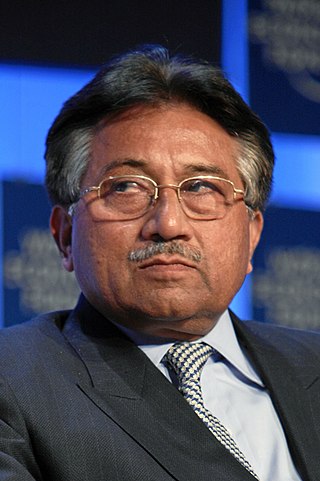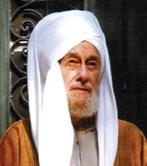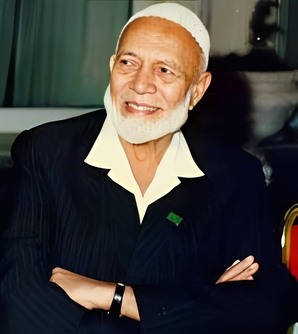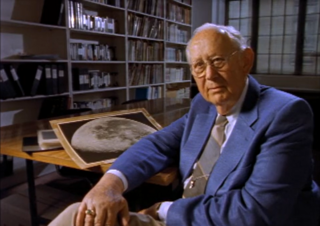Related Research Articles

Pervez Musharraf was a Pakistani military officer and politician who became the tenth president of Pakistan after the military takeover of the federal government in 1999. He also served as the 10th Chairman Joint Chiefs of Staff Committee from 1998 to 2001 and the 7th Chief of Army Staff from 1998 to 2007.

Ellsworth F. Bunker was an American businessman and diplomat. He is perhaps best known for being a hawk on the war in Vietnam and Southeast Asia during the 1960s and 1970s. As of June 2021, Bunker is one of two people to receive the Presidential Medal of Freedom twice, and the only to do so with distinction twice.
A dowry is a payment, such as property or money, paid by the bride's family to the groom or his family at the time of marriage. Dowry contrasts with the related concepts of bride price and dower. While bride price or bride service is a payment by the groom, or his family, to the bride, or her family, dowry is the wealth transferred from the bride, or her family, to the groom, or his family. Similarly, dower is the property settled on the bride herself, by the groom at the time of marriage, and which remains under her ownership and control.

Shāh Karim al-Husayni, known by the religious title Mawlānā Hazar Imam by his Ismaili followers and elsewhere as Aga Khan IV, is the 49th and current Imam of Nizari Ismailis, a denomination within Shia Islam. He has held the position of imam and the title of Aga Khan since 11 July 1957, when, at the age of 20, he succeeded his grandfather, Sir Sultan Muhammad Shah Aga Khan III. The Aga Khan claims direct lineal descent from the Islamic prophet Muhammad through Muhammad's cousin and son-in-law, Ali, considered an imam in Shia Islam, and Ali's wife Fatima, Muhammad's daughter from his first marriage.

Alvin Robert Cornelius, HPk was a Pakistani jurist, legal philosopher and judge, serving as the 4th Chief Justice of Pakistan from 1960 until 1968. In addition, he served as Law Minister in the cabinet of Yahya Khan, 1969 – 16 December 1971.

The Barelvi movement, also known as Ahl al-Sunnah wa'l-Jamaah is a Sunni revivalist movement following the Hanafi and Shafi'i schools of jurisprudence, with strong Sufi influences and with over 200 million followers in South Asia and also in parts of Europe, America and Africa. It is a broad Sufi-oriented movement that encompasses a variety of Sufi orders, including the Chistis, Qadiris, Soharwardis and Naqshbandis. They consider themselves to be the continuation of Sunni Islam before the rise of Salafism and Deobandi Movement.

Martin Lings, also known as Abū Bakr Sirāj ad-Dīn, was an English writer, Islamic scholar, and philosopher. A student of the Swiss metaphysician Frithjof Schuon and an authority on the work of William Shakespeare, he is best known as the author of Muhammad: His Life Based on the Earliest Sources, first published in 1983 and still in print.

Ahmed Husein Deedat, also known as Ahmed Deedat, was a self-taught Muslim thinker, author, and orator on Comparative Religion from South Africa. He was best known as a Muslim missionary, who held numerous inter-religious public debates with evangelical Christians, as well as video lectures on Islam, Christianity, and the Bible.

Lieutenant General Hamid GulHI(M) SI(M) SBt was a three-star rank army general in the Pakistan Army and defence analyst. Gul was notable for serving as the Director-General of the Inter-Services Intelligence (ISI), Pakistan's premier intelligence agency, between 1987 and 1989. During his tenure, Gul played an instrumental role in directing ISI support to Afghan resistance groups against Soviet forces in return for funds and weapons from the US, during the Soviet–Afghan War, in co-operation with the CIA.

Ekmeleddin Mehmet İhsanoğlu is a Turkish academic, diplomat and politician who was Secretary-General of the Organisation of Islamic Cooperation (OIC) from 2004 to 2014. He is also an author and editor of academic journals and advocate of intercultural dialogue.
The Khalden training camp was one of the oldest and best-known military training camps in Afghanistan. It was located in the mountains of eastern Paktia Province, near to Tora Bora.

Javed Ahmad Ghamidi is a Pakistani philosopher, educationist, and scholar of Islam. He is also the founding President of Al-Mawrid Institute of Islamic Sciences and its sister organisation Danish Sara.
At Duke University, the title of James B. Duke Professor is given to a small number of the faculty with extraordinary records of achievement. At some universities, titles like "distinguished professor", "institute professor", or "regents professor" are counterparts of this title. Two Nobel laureates currently serve as James B. Duke Professors.

The Ahmadiyya branch of Islam has been subject to various forms of religious persecution and discrimination since the movement's inception in 1889. The Ahmadiyya Muslim movement emerged from the Sunni tradition of Islam and its adherents believe in all the five pillars and articles of faith required of Muslims. Ahmadis are considered non-Muslims by many mainstream Muslims since they consider Mirza Ghulam Ahmad, the founder of the movement, to be the promised Mahdi and Messiah awaited by the Muslims.
Ralph Matthew McInerny was an American author and philosophy professor at the University of Notre Dame. McInerny's most popular mystery novels featured Father Dowling, and was later adapted into the Father Dowling Mysteries television show, which ran from 1987 to 1991.

Ralph Belknap Baldwin was an American planetary scientist known for his work on lunar craters, beginning in the late 1940s. His book, The Face of the Moon made the case for the impact nature of lunar craters. He published The Measure of the Moon in 1963.

Akhundzada Mohammad Abdul Ghafoor Hazarvi was a Muslim theologian, jurist, and scholar of ahadith in Pakistan. He was active in the Pakistan movement, member of Council of Islamic Ideology. He was the companion of Muhammad Ali Jinnah and separatist leader Maulana Zafar Ali Khan and was active in the independence movement of Pakistan against the British Raj. He was a Sufi of the Chishti Sufi order and the founding member of the religious Barelvi Sunni strain political party Jamiat Ulema-e-Pakistan (JUP). He became its president in 1948. He was also a political figure in Pakistan and was the first recipient of Nishan-e-Imtiaz by the President of Pakistan. He was also the chairman of Majlis-e-Tahaffuz-e-Khatme Nabuwwat, an organisation opposed to the Ahmadiyya Movement that waged a campaign against Mirza Ghulam Ahmed's claim of prophethood.
This is a summary of 1926 in music in the United Kingdom.
The Pakistan Armed Forces have been criticized for eroding democratic processes in Pakistan, for being the largest business conglomeration in the country and for excessive control over the domestic and foreign policies of Pakistan. Critics of the Pakistan Army, such as human rights activist Manzoor Pashteen, have been jailed while like-minded Pakistani citizens are warned against criticizing the military establishment. In Pakistan, the military is considered a part of what is known as The Establishment; they control the state through a backdoor and are a part of a working deep state.
References
- ↑ "Ralph Braibanti, Expert on Islamic-Western Relations, Dies". Duke Today. Office of News & Communications, Duke University. 2 December 2005. Retrieved 19 March 2018.
- ↑ Obituary: Ralph Braibanti. The Washington Post, November 27, 2005